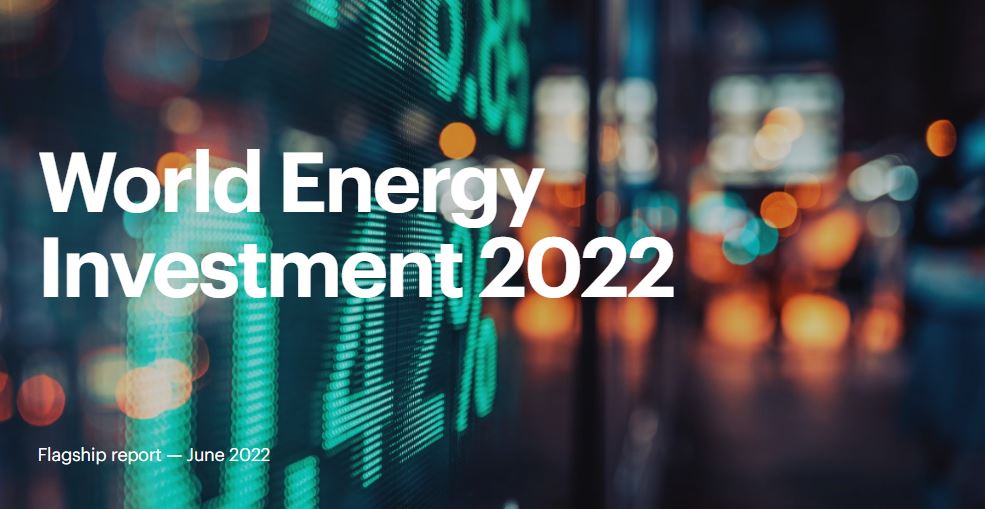Getech welcomes today’s IEA World Energy Investment Report showing that clean energy spending has returned to a trajectory of growth, with a predicted 8% increase in 2022. Getech however, believes we must not lose sight that the world is still falling short on climate goals and on producing enough reliable and affordable energy. As a geoenergy and green hydrogen company, Getech applies its world-leading geoscience data and unique geospatial software products to accelerate the energy transition by locating, developing and operating clean energy projects. The report’s findings highlight growth in key market sectors for Getech including green hydrogen production, carbon capture and storage, geothermal and critical minerals.
Dr Jonathan Copus, CEO of Getech commented: “After remaining flat for several years, global clean energy spending is now ramping up, but the energy trilemma of security vs supply vs cost remains a challenge. As we seek to accelerate investment in clean, reliable and affordable energy, by leveraging our geoscience data and skills, we know that forming new partnerships to enable the most efficient scale-up of supply is crucial to success. Policy makers need to work closely with industry to make this happen.”
Unprecedented levels of investment are expected in hydrogen companies, according to the IEA, with investor returns and revenues three times higher than five years ago. Getech is developing green hydrogen hubs with networks being rolled out in the UK to decarbonise transport systems. With agreements in place in the Highlands of Scotland and at Shoreham Port in England, Getech believes the potential for ramping up further investment will improve economies of scale and help support widespread industrial decarbonisation.
Dr Copus added: “Green hydrogen is undergoing extreme growth as the benefits, particularly for transport applications, are more fully understood against a backdrop of increased policy support. We are delivering ground-breaking projects and have clear ambitions to establish at least 500MW of new geoenergy and green hydrogen assets by 2030.”
Clean energy technologies require a host of critical minerals and today’s IEA report shows that higher and more diversified investment in critical minerals is a vital part of the solution. “Elevated critical mineral prices are accompanied by expectations of rapid demand growth and this helps to underpin expansive investment plans. Using our collection of global knowledge and data products, we are locating a broad range of mineral deposits all over the world that are needed for scaling renewable technologies,” he said.
The IEA report further states that net zero pledges and anticipated low-carbon hydrogen have led to a recent wave of CCUS project announcements that could push annual investment up to USD 40 billion by 2024.
“We are supporting companies and governments with strategic assessments to define key areas for CO2 energy storage, taking into account capacity, storage suitability, risk and infrastructure locations. By leveraging our subsurface understanding and geospatial capabilities we are able to bring a wide variety of factors together that allow us to find the storage sweet spots which are crucial if we want to scale at pace,” he added.
Geothermal projects for district heating and cooling suffered from the pandemic, but a rebound is expected in the next five years, with over 230 projects under development, mostly for district heating in Europe, according to the agency’s research. Getech combines decades of subsurface understanding with an in-depth assessment of above-ground commercial and operational factors to identify the most prospective geothermal opportunities and has brought this this capability together in its proprietary Heat Seeker™ tool.
Dr Copus highlighted: “The potential for geothermal energy is still hugely underestimated. It is accessible everywhere in the world and unlike other sources, is not affected by the vagaries of the weather, making it the perfect green baseload energy source. It can provide domestic energy security, however geothermal is often out of sight for policy makers so remains underdeveloped. We see this as a huge opportunity for the future clean energy mix.”






